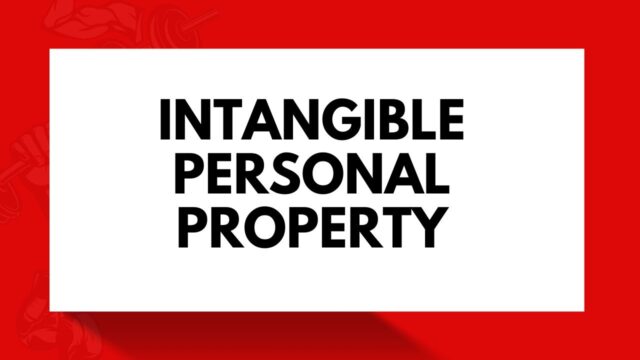
What is intangible personal property
Intangible personal property is a type of property that lacks a physical form. Instead, it is represented by a legal document or contract. Common examples of intangible personal property include stocks, bonds, and copyrights. Unlike real property, which is land or a physical object, intangible personal property cannot be seen or touched. However, it can still be bought, sold, or leased. While it may lack a physical form, intangible personal property can still have substantial value. For instance, a copyright on a popular song can be worth millions of dollars. As such, intangible personal property is an important part of the economy.
How is it different from other types of personal property
Intangible personal property is distinct from Tangible Personal Property, which refers to Personal Property that can be seen and touched. One key difference between the two types of property is that Intangible Personal Property often has greater value than Tangible Personal Property. This is because Intangible Personal Property typically represents a larger investment of time and resources, and it can be more difficult to replace if it is lost or damaged. As a result, Intangible Personal Property is often subject to greater protections under the law.
What are some examples of intangible personal property
Some examples of intangible personal property include stocks, bonds, copyrights, and patents. Intangible personal property is typically divided into two categories: financial assets and intellectual property. Financial assets, such as stocks and bonds, represent ownership interests in a company or enterprise.
Intellectual property, on the other hand, refers to creations of the mind, such as inventions, designs, and works of art. While intangible personal property does not have a physical form, it can be very valuable. For example, a patent for a new invention can be worth millions of dollars. Intangible personal property can also be difficult to value and protect. For instance, it can be difficult to determine the value of a copyright or to prevent someone from infringing on a patent.
Why is it important to know about intangible personal property
Intangible personal property is important because it can have a significant impact on a company’s financial statements. For instance, if a company owns a patent, it can generate revenue by licensing the patent to other companies. Intangible personal property can also be used as collateral for loans. As such, it is important for investors and creditors to be aware of a company’s intangible assets. This information can be found in a company’s balance sheet.
How can you protect your intangible personal property
One way to protect your intangible personal property is to register it with the appropriate government agency. For example, you can register copyrights with the U.S. Copyright Office and trademarks with the U.S. Patent and Trademark Office. Another way to protect your intangible personal property is to secure insurance against loss or damage. This can give you some financial recourse if your intangible personal property is stolen or destroyed. Finally, you can also take steps to keep your intangible personal property confidential. For instance, you can sign nondisclosure agreements with anyone who has access to your trade secrets or other sensitive information. By taking these precautions, you can help ensure that your intangible personal property remains safe and valuable.
What are some common disputes over intangible personal property
Common disputes over intangible personal property can arise when the owner of the property attempts to sell or license it to another party. For example, the owner may claim that the property is worth more than the other party is willing to pay, or that the other party is not meeting their obligations under the terms of the agreement. Intangible personal property can also be the subject of theft, fraud, or misuse, which can lead to disputes between the owner and the party who took or used the property without permission. Disputes over intangible personal property can be difficult to resolve, as they often require expert testimony in order to determine the value of the property or establish whether it has been misused.
How can you resolve a dispute over intangible personal property
One way to resolve a dispute over intangible personal property is to have a clear contract that specifies who owns the property and how it can be used. Another way to resolve a dispute is to go to mediation or arbitration. In mediation, a neutral third party will help the parties to come to an agreement. In arbitration, the parties will present their case to an arbitrator, who will make a decision about who owns the property.


































